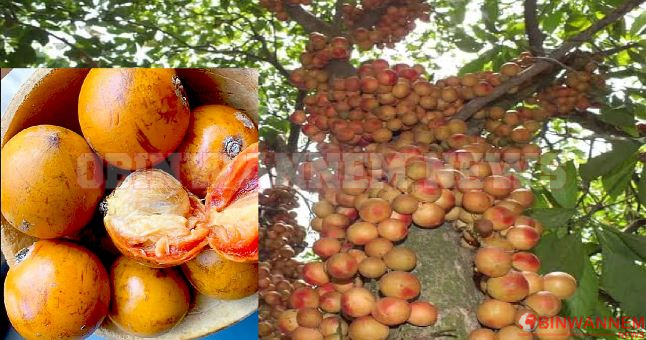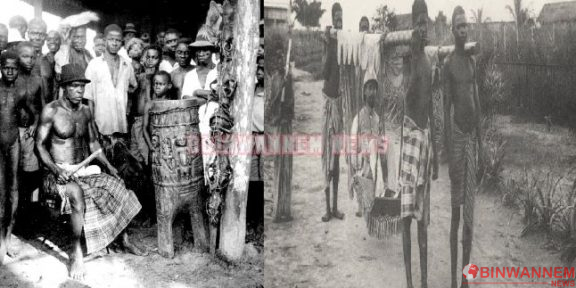African Star Fruit known as Udala formerly called by Anambra/Enugu indigenes, also referred to as Udara in Imo state of Nigeria has a notable relevance in the culture of Ndigbo. Its existence is shrouded in mystery and superstition.
The cultural formation of the Udala has several folktales centered on the tree . One ancient story of an orphan who planted an Udala tree because his step mother spitefully excluded him when she shared udala to her children. The orphan faithfully sang to the seed he’d planted until it germinated, grew and produced lush fruits that always fell everytime he wanted to lick Udala.
One of the stanzas of the song in the story goes like this,
Udala mu mia, Nda
mia mia mia, Nda
Nwunye nna muo, Nda
Gote Udala lachaa, Nda
Lacha Lacha Lacha, Nda
Lachapu nwa enwe nne, Nda
Lachapu nwa enwe nna, Nda
Enu uwa bu olili, Nda
Onye nosia onava, Nda. Most people can remember the impact of this song told by our fathers during moonlight folktales.
Instrestingly, The Udala tree is sacred in most Igbo community, it is the abode of spirit children. Children were therefore forbidden from going near the tree at Uga Olu .Uga Olu means working hours .Since the village was usually quiet when parents, guardians, and adolescents went to work, children were warned to stay close to the homestead and to avoid going to pick udala at this time. It was believed that any child that goes near the Idala tree at Uga Olu could be stolen by the spirits.
Another unfathomable significant of the Udala tree, it is considered as a symbol that guarantees fertility in Igboland, this is because, the tree is surrounded by children. In ancient days most women with issues of infertility sits under the shade of the Udala tree to wait in the hope that one of the good spirit children can come to them.
Many years ago, this tree was usually found in the village square. The fact that no one knew who planted it added to its mystery. It was (is) communally owned; anyone could pick and enjoy the fruit of this tree.
Plucking or climbing the udala tree was, however, considered a taboo in the Aguleri, Omabala Area .
Anyone who wanted to eat of the fruit of this tree waited patiently for it to fall. No one knows the reason for this but I think this law was formulated to instill discipline and patience in the people. Anyway, when udala is in season, children converge under the tree early in the morning and at full moon to play and wait for the fruit to fall.
However, some people disobey this unwritten rule guiding the treatment of Udala fruits and trees. They still throw stones and other objects on the fruit when they are desperate to enjoy the fruit. This has led to the culture of ‘tying palm frond’ (imachi udala) on the tree to deter people from throwing stones or other objects at the fruits.
This age-long culture which was abandoned for long was revived in Enugwu-Ukwu under the leadership of Mr Ifeanyi Celestine Okoye, the Chairman of Uruekwo Village Youths.
The traditions of IMACHI UDALA in Enugwu-Ukwu cautions any person whether adult or underaged caught throwing stones or any other object at udala fruits in a bid to pluck them will receive emergency visitors in his or her father’s compound. The visitors may be mainly masquerades of different types with canes. This means that the masquerades will beat the person that day to teach him or her how to respect what belongs to the public.
Udala may grow in a farmland or other lands owned by individuals but it does not significantly mean that the owner of the land where the udala tree grows on owns it.
Though you may cut down the Udala tree for development or other reasons before you do that, you must first call children of the village together, inform and appease them by holding a small feast (salaka) for them. You should plead with them to permit you to cut the Udala tree down. If they refuse, you dare not cut it, else their anger will attract spiritual punishment for you.
Lolo Ijeoma Njoku Obinwannem News Writer/ June 1, 2022

















